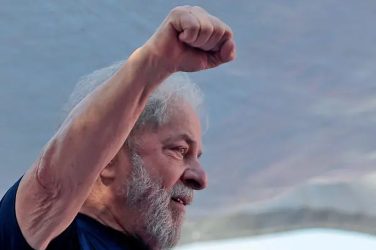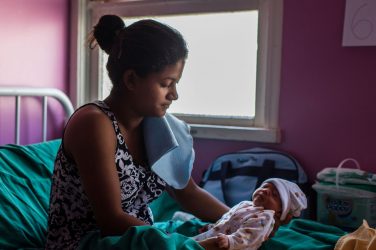Shaken by the world’s second deadliest coronavirus outbreak and a deep economic crisis, Brazilians voted on Sunday for experienced politicians from traditional parties in local elections, a move that may damage reelection hopes for President Jair Bolsonaro.
Candidates backed by the far-right populist president, who presents himself as an outsider, were knocked out of the running in the country’s largest city São Paulo and other municipal races in state capitals.
In Rio de Janeiro, Brazil’s second largest city, former mayor Eduardo Paes led the election and will face incumbent mayor, evangelical bishop Marcelo Crivella, in a runoff in two weeks.
In Salvador, the fourth city, voters elected Bruno Reis of the Democrats center-right party (DEM), which won mayoral races in Curitiba and Florianópolis and is expected to win in Rio with Paes.
In Belo Horizonte, the sixth largest city, voters re-elected Alexandre Kalil, who adopted tough and social distancing measures that were criticized by Bolsonaro, who has repeatedly downplayed the gravity of Covid-19.
“The pandemic has put the brakes on the trend towards anti-politics and rejection of traditional parties for being corrupt,” said Creomar de Souza, head of Brasilia-based consultancy Dharma Political Risk and Strategy.
“Voters understood that the politicians elected with Bolsonaro in 2018 are flawed and they want to see public services improve,” he added.
The results are a setback for Bolsonaro and indicate that the wave of anti-establishment sentiment, that got him elected in 2018 following the widespread political corruption uncovered by the Car Wash graft investigation, may have subsided.
As voters look to traditional parties not in the Bolsonaro camp, like the DEM and the centrist Brazilian Social Democratic Party (PSDB), which is leading the race for São Paulo mayor, Bolsonaro appears vulnerable because he has no party.
The Social Liberal Party (PSL) he joined for his presidential campaign and later fell out with was nowhere to be seen in major city races on Sunday, despite having surged two years ago to become the second largest in Congress.
With Bolsonaro’s political capital on the wane, Brazil’s divided left gained a new footing in São Paulo and Porto Alegre where the Socialism and Liberty Party (PSOL) and the Communist Party of Brazil made it to second-round runoffs.
They overtook former president Luis Inácio Lula da Silva’s Workers Party (PT), which lost 60% of its mayors four years ago and declined further. Lula’s candidate in São Paulo came in sixth.
Political Blow to Bolsonaro
Parties with the backing of independent President Jair Bolsonaro fared worse than predicted in local elections. The left-wing Workers’ Party also struggled. Traditional center-right and right-wing groups gained ground.
Voters in Brazil rebuked President Jair Bolsonaro’s political allies in local elections on Sunday. Candidates backed by the right-wing populist president racked up losses in the country’s largest city of São Paulo and other municipal races in state capitals.
Bolsonaro, who has no official political party, has been under fire this year for his handling of the coronavirus pandemic. In gross terms, Brazil has the world’s third-highest known caseload and second-highest known death toll — with its economy also impacted.
The president still holds approval ratings above 40% and he still counts on a loyal core of voters who favor his tenure. Bolsonaro was spotted voting in his hometown, Rio de Janeiro, and posing for photos with supporters outside the polling station. He did not speak with the press.
Aside from Bolsonaro, Brazil’s left was the other political group hurt in Sundays local elections. The Workers’ Party has been weakened and divided since the impeachment of then-President Dilma Rousseff in 2016 and the jailing of her predecessor, party founder Luiz Inácio Lula da Silva, on corruption charges.
Traditional center-right and right-wing parties emerged as winners in the first round of the local elections.
In São Paulo, Brazil’s biggest city and economic capital, Bolsonaro’s candidate Celso Russomanno failed to reach the November 29 runoff, finishing far behind center-right Mayor Bruno Covas and left-wing candidate Guilherme Boulos.
The president’s ally in Rio de Janeiro, Evangelical pastor and current Mayor Marcelo Crivella, managed to clear the hurdle and reach the second round, but he trailed ex-mayor Eduardo Paes 37% to 22%, election officials said.
In a direct rebuke to Bolsonaro, voters in Belo Horizonte, the sixth-largest city, re-elected mayor Alexandre Kalil, who took tough quarantine and social distancing steps that were criticized directly by the president.
One political party that Bolsonaro had backed during his presidential campaign, The Social Liberal Party, did not even make it to the top three in major city races across the country, despite having been boosted by his endorsement enough to become the second largest group in Congress.
The only place where Bolsonaro candidates scored were smaller cities, such as Belém and Fortaleza.
Second Round in 57 Cities
In Brazil’s municipal elections this year, a second round will be held in 57 cities, of which 18 are capitals — among them are Brazil’s two largest cities: Rio de Janeiro and São Paulo. In these locations, electoral campaigns may resume this November 16.
The second round is slated to take place on November 29, 13 days after the first vote — the shortest interval in history. The gap takes usually three to four weeks. The tight schedule was approved by Congress as a result of the COVID-19 pandemic.
The face-off will be disputed by the two best-performing candidates in each of these 57 cities, as none of them managed to garner an absolute majority (50 percent plus one) of valid ballots in the first round — blank and null votes, as well as abstentions, were not taken into account.
The second round was possible in the 95 Brazilian cities with more than 200 thousand people. Of these, 35 decided their winners in the first round, as they had a candidate that received more than half of valid ballots.
The need for a second vote in the mayoral race in cities with 200 thousand inhabitants or more is stipulated by the Constitution and follows the same model adopted in the presidential and gubernatorial elections.
Reuters/DW/ABr






